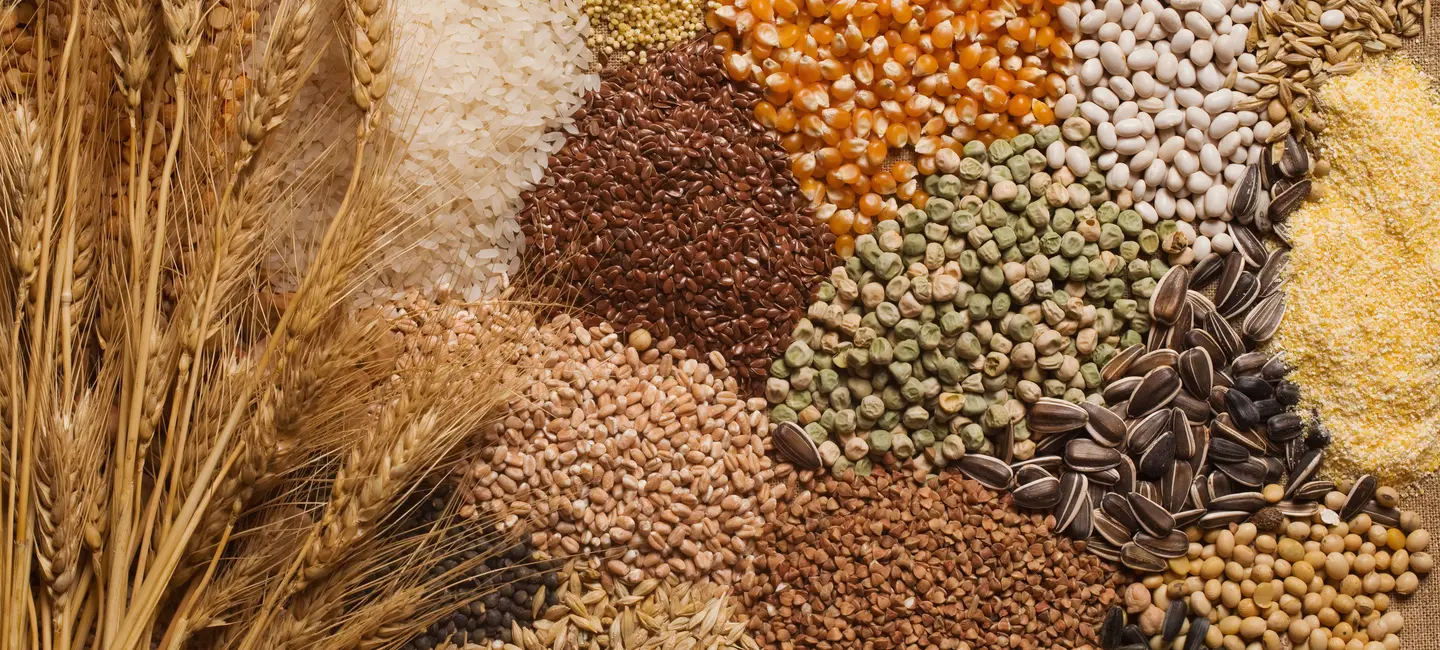
Arabinoxylan is a dietary fiber found in cereal grains such as wheat, corn, rice, rye, oat, and barley. It is used as a medicine.
Arabinoxylan is taken by mouth for heart disease, constipation, diabetes, prediabetes, metabolic syndrome, and weight loss, but there is no good scientific evidence to support these uses.
Is It Effective?
NatMed Pro rates effectiveness based on scientific evidence according to the following scale: Effective, Likely Effective, Possibly Effective, Possibly Ineffective, Likely Ineffective, Ineffective, and Insufficient Evidence to Rate.
- Diabetes. Early research shows that eating food fortified with arabinoxylan for 5 weeks lowers blood sugar levels and insulin levels in people with type 2 diabetes. It also seems to improve blood sugar control.
- Prediabetes. Early research shows that eating food fortified with arabinoxylan for 6 weeks lowers blood sugar levels and levels of a blood fat called triglycerides.
- A grouping of symptoms that increase the risk of diabetes, heart disease, and stroke (metabolic syndrome). Early research shows that eating a diet containing arabinoxylan does not seem to improve blood sugar or cholesterol levels in most people with metabolic syndrome.
- Heart disease.
- Constipation.
- Weight loss.
- Other conditions.
More evidence is needed to rate the effectiveness of arabinoxylan for these uses.
Is it Safe?
Arabinoxylan might work by reducing the amount of sugar and cholesterol that is absorbed in the stomach and intestines. It might also change the makeup of the bacteria in the gut.
When taken by mouth: Arabinoxylan is POSSIBLY SAFE when taken by mouth for up to 6 weeks. It might cause diarrhea, gas, bloating, or stomach pain.
Special Precautions & Warnings:
Pregnancy and breast-feeding: There isn't enough reliable information to know if arabinoxylan is safe to use when pregnant or breast-feeding. Stay on the safe side and avoid use.
Diabetes: Arabinoxylan might lower blood sugar levels in people with diabetes. Monitor blood sugar levels closely. Doses of conventional antidiabetes medications may need adjustment.
Surgery: Arabinoxylan might affect blood sugar levels. There is concern that arabinoxylan might affect blood sugar control during and after surgery. Stop taking arabinoxylan at least 2 weeks before a scheduled surgery.
Medications for diabetes (Antidiabetes drugs)
Interaction Rating=Moderate Be cautious with this combination.
Arabinoxylan might decrease blood sugar. Diabetes medications are also used to lower blood sugar. Taking arabinoxylan along with diabetes medications might cause your blood sugar to go too low. Monitor your blood sugar closely. The dose of your diabetes medication might need to be changed.
Some medications used for diabetes include glimepiride (Amaryl), glyburide (DiaBeta, Glynase PresTab, Micronase), insulin, pioglitazone (Actos), rosiglitazone (Avandia), chlorpropamide (Diabinese), glipizide (Glucotrol), tolbutamide (Orinase), and others.
Herbs and supplements that might lower blood sugar: Arabinoxylan might lower blood sugar. Using it along with other herbs and supplements that have the same effect might cause blood sugar to drop too low in some people. Some of these products include alpha-lipoic acid, bitter melon, chromium, devil's claw, fenugreek, garlic, guar gum, horse chestnut, Panax ginseng, psyllium, Siberian ginseng, and others.
There are no known interactions with foods.
The appropriate dose of arabinoxylan depends on several factors such as the user's age, health, and several other conditions. At this time, there is not enough scientific information to determine an appropriate range of doses for arabinoxylan. Keep in mind that natural products are not always necessarily safe and dosages can be important. Be sure to follow relevant directions on product labels and consult your pharmacist or physician or other healthcare professional before using.
Arabinoxilano, Arabinoxylane, Pentosan.
Information on this website is for informational use only and is not intended to replace professional medical advice, diagnosis, or treatment. While evidence-based, it is not guaranteed to be error-free and is not intended to meet any particular user’s needs or requirements or to cover all possible uses, safety concerns, interactions, outcomes, or adverse effects. Always check with your doctor or other medical professional before making healthcare decisions (including taking any medication) and do not delay or disregard seeking medical advice or treatment based on any information displayed on this website.
© TRC Healthcare 2024. All rights reserved. Use and/or distribution is permitted only pursuant to a valid license or other permission from TRC Healthcare.
